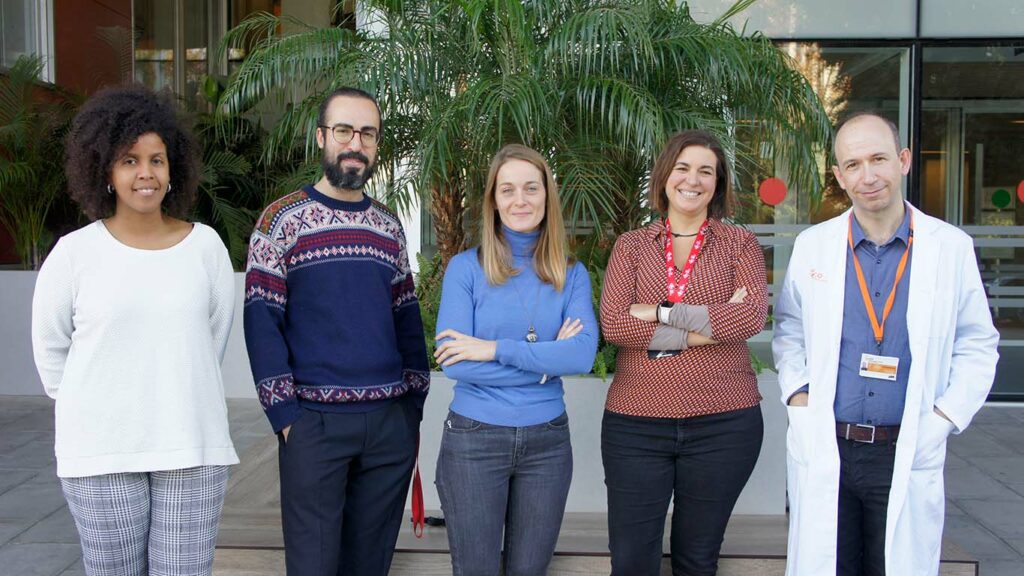In recent years, TRAIL protein receptors have attracted the attention of oncology research since their activation induces the death of many tumor cell types without attacking healthy cells. However, now a research group from IDIBELL and the Catalan Institute of Oncology, in collaboration with the University of Amsterdam, discovered that these receptors in lung cancer cells promote effects that would stimulate tumor development.
“Our results suggest that in lung cancer, the activation of the TRAIL pathway is not recommendable. On the contrary, its inhibition should be taken into account as a possible therapeutic option,” points out Dr. Cristina Muñoz, head of the IDIBELL group and project leader.
The results published in the journal Cell Death and Disease show that, in non-small cell lung cancer, TRAIL receptors promote the secretion of a proinflammatory and proangiogenic protein called IL-8. In fact, high levels of IL-8 are associated with a poor prognosis and resistance to therapy.
“The inhibition of IL-8 secretion had previously been proposed as a possible treatment for lung cancer and other solid tumors -says Francesca Favaro, a predoctoral researcher at IDIBELL and the University of Amsterdam, and first author of the paper-, but what drives IL-8 secretion? Thanks to this work we know that the modulation of the TRAIL receptors could be a regulatory pathway.”
In samples of human tumors, the tumorigenic potential of TRAIL seems to be confirmed. Patients with elevated levels of TRAIL and its receptors have higher expression of IL-8 and tumors with greater vascularity, an indicator of tumor development.
The Bellvitge Biomedical Research Institute (IDIBELL) is a biomedical research center created in 2004. It is participated by the Bellvitge University Hospital and the Viladecans Hospital of the Catalan Institute of Health, the Catalan Institute of Oncology, the University of Barcelona and the City Council of L’Hospitalet de Llobregat.
IDIBELL is a member of the Campus of International Excellence of the University of Barcelona HUBc and is part of the CERCA institution of the Generalitat de Catalunya. In 2009 it became one of the first five Spanish research centers accredited as a health research institute by the Carlos III Health Institute. In addition, it is part of the “HR Excellence in Research” program of the European Union and is a member of EATRIS and REGIC. Since 2018, IDIBELL has been an Accredited Center of the AECC Scientific Foundation (FCAECC).

